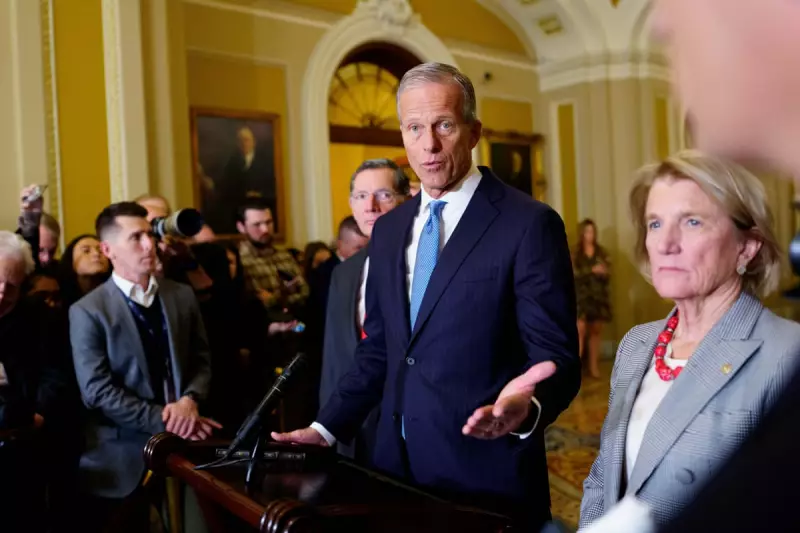
Republican Senators Issue Warning Over Epstein Documents
Within hours of Donald Trump signing the Epstein Files Transparency Act into law, senior Republican figures delivered a stark warning to US Attorney General Pam Bondi: do not attempt to bury the crucial documents related to the Jeffrey Epstein case.
The legislation, which passed with remarkable bipartisan support, sets a strict 30-day deadline for the Department of Justice to release files concerning the most infamous paedophile in American history, as labelled by a judge. This development represents a rare defeat for Trump, who initially opposed the bill before reversing his position amid rebellion within his own party.
Bipartisan Pressure for Transparency
The bill achieved near-unanimous approval, passing the House of Representatives with 427 votes and sailing through the Senate by unanimous consent. Rather than celebrating this unusual cross-party consensus, Republican lawmakers immediately expressed concerns about potential obstruction from the Justice Department.
Senator Lisa Murkowski of Alaska voiced the apprehension shared by many colleagues: People who feel very strongly about this will feel like they've been duped if the department claims inability to release information due to active investigations. She emphasised that such moves would not help calm the suspicions many have harboured for a long while on this.
The anxiety stems from the Trump administration's earlier resistance to transparency, which included months of dismissing public demands before this week's dramatic U-turn when the bill's passage became inevitable.
Potential Loopholes and Political Concerns
Republican Senator Thom Tillis of North Carolina, a judiciary committee member, issued a direct warning: If you do a blanket hold, I think that they're going to have a lot of people angry. He later added that it would just add fuel to the fire if they don't produce something meaningful.
The legislation mandates release of unclassified materials within 30 days in a searchable format, yet contains exemptions for information that could jeopardise active investigations and for material depicting minors. These provisions represent potential escape hatches that concern transparency advocates.
With Bondi opening investigations exclusively into Democrats mentioned in Epstein's correspondence, Republicans are watching closely for signs the department might use those probes as justification for redacting or withholding materials.
The legislation requires disclosure of materials related not only to Epstein but also to his accomplice Ghislaine Maxwell, the British socialite convicted in 2021 and sentenced to 20 years for recruiting and grooming underage girls.
Historical Context and Ongoing Skepticism
The urgency reflects deep skepticism about how the justice department has handled the Epstein case historically. In 2008, then-US attorney Alexander Acosta approved a non-prosecution agreement that allowed Epstein to plead guilty to state prostitution charges, avoiding federal sex-trafficking prosecutions.
Epstein served just 13 months of an 18-month sentence in a minimum-security facility with work-release privileges. That deal, later ruled to have violated victims' rights, shielded Epstein from far more serious federal charges for over a decade until his 2019 arrest.
The financier died in federal custody in August 2019, one month after his arrest on sex-trafficking charges. His death was officially ruled a suicide.
Senate Majority Leader John Thune weighed in alongside his colleagues, stating he trusts the judgment of the justice department to ensure that whatever files they release protect the victims, while emphasising that Congress had clear intent to get the information out there.
The FBI has indicated its records include more than 300 gigabytes of data and evidence. Content depicting child abuse will remain sealed, and information that could compromise ongoing investigations may be withheld or redacted.
Republican Senator Eric Schmitt of Missouri summarised the prevailing sentiment: All the credible information that can be released should be released. The real test now lies with Bondi's department, and how swiftly and transparently they act could significantly shape perceptions of the Trump administration's commitment to accountability on this highly sensitive matter.





